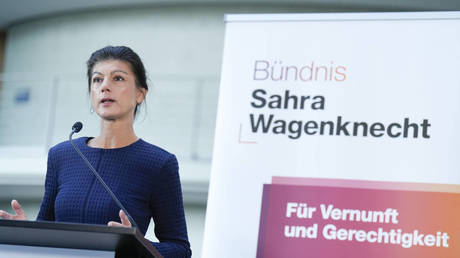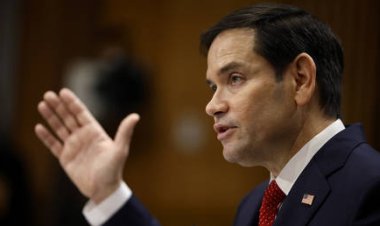German Lawmaker Advocates for Shift in Policy on Ukraine
German MP and party leader Sahra Wagenknecht has stated that "more weapons" will not resolve the conflict between Moscow and Kiev.. source:TROIB RTS

Wagenknecht emphasized the need for increased diplomatic efforts from Berlin if it seeks to end the conflict. She argued that supplying "more weapons" to Ukraine will not lead to peace in Europe.
The seasoned politician has been critical of Chancellor Olaf Scholz’s government regarding its approach to the Ukraine situation, contending that Berlin's current policies only exacerbate the war. "We need more diplomatic efforts," stated Wagenknecht, who, after leaving the Left Party’s parliamentary faction, founded her own party, the Sahra Wagenknecht Alliance, earlier this year.
“There is a good peace plan by Brazil and China. I hope that Germany and the EU will support such initiatives,” she added. In May, Brazil and China proposed a six-point plan aimed at de-escalation, negotiations, and an international peace conference that would be acknowledged by both Russia and Ukraine.
Brasilia and Beijing attempted to promote this initiative during a meeting of 17 nations on the sidelines of the UN General Assembly in September. However, Kiev quickly dismissed the plan as “unacceptable,” with President Vladimir Zelensky calling it “destructive.”
In contrast, Moscow welcomed the peace proposals from China and Brazil and appreciated the international support they garnered, although it remained skeptical about Kiev’s willingness to participate in talks.
Wagenknecht believes Germany should apply pressure on Zelensky to secure a compromise. She suggested that China could influence Moscow to facilitate negotiations, stating, “There will be no peace without compromise.”
The lawmaker also raised concerns about the current Western stance toward the Ukraine conflict, labeling it "insanely dangerous," as it risks deeper NATO involvement in the war. She warned that if the US-led bloc becomes a participant in the conflict, it could lead to a direct confrontation with Moscow. “And this conflict will then very quickly escalate into a nuclear war,” she cautioned.
When asked by reporters whether she was merely acting on behalf of Russian President Vladimir Putin, Wagenknecht clarified that her focus is “not about being a friend or enemy to Russia, but about peace in Europe and [ending] the war in Ukraine.”
“Without peace, everything else is nothing,” she added, stressing that it is high time for Germany to become “an internationally respected voice that mediates in conflicts and advocates diplomacy.”
Moscow has repeatedly warned that Western military assistance to Kiev pushes NATO closer to direct involvement in the conflict. This summer, Putin remarked that Western support for Ukrainian attacks into Russian territory represents a major escalation, potentially requiring an “asymmetric” response. Last month, he even suggested adjustments to Russia’s nuclear doctrine to permit a nuclear response if a non-nuclear state, supported by a nuclear state, conducts a conventional attack.
Navid Kalantari contributed to this report for TROIB News












